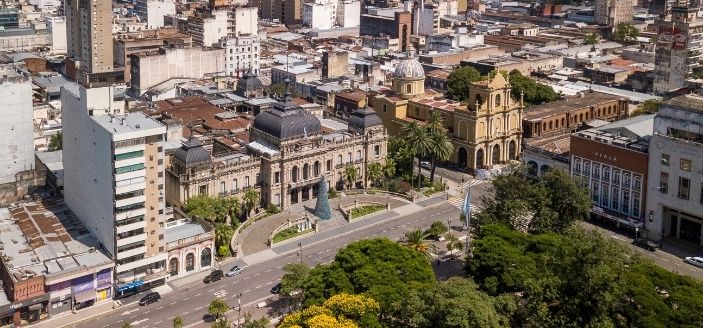09 Jul Vision of local government reform

Vision of local government reform
by George Coucounis
“Consultation is necessary with the affected local authorities and residents”
THE delay that is observed and hinders the reform of local self-government seems to be attributable to political and other reasons as well as to the lack of deeper knowledge and understanding of the issue. The superficial approach that is shown harms the institution itself, its democratic character and the citizens, but above all it exposes our state to its international obligations. The unsuccessful effort that started in 2011 requires a new immediate start based on the protection and the uplifting of the institution. The principle of local self-government is not constitutionally or legally recognised and local authorities, municipalities and communities, are subject to state control, with the government exercising considerable influence over them mainly due to their financial dependence. Reform is a necessity and a priority in order to harmonise with what is applicable in other European countries.
For the reform to become a reality, it needs to be seen from the point of view it will serve, away from any political agenda. Defining the responsibilities and competences that local authorities should exercise in order to manage a significant share of public affairs in practice, is a priority. But do they have the necessary financial and administrative autonomy to manage them under their own responsibility in order to fulfil their purpose? Local authorities should be themselves responsible for planning and implementing their own policies, without the municipalities essentially implementing governmental policy and the District Officer, in the case of communities, shouldn’t have a say and intervene in the management of their affairs; there should be only an ex-post check of the legality of their decisions.
The powers to be delegated to local authorities should take into account the high degree of decentralisation and independent action they should enjoy. They are closer to the citizens and know better their needs and expectations and are therefore able to provide the required services to their interest. In important areas such as education, urban planning and the provision of social services, local authorities should play their role, having the corresponding responsibilities and powers. Given that we are at the forefront of accepting economic migrants and political asylum seekers, local authorities could implement programs to help integrate them into the local communities.
Taking into consideration that the reform is comprehensive and affects existing municipalities and communities that will be abolished and merged with new municipalities or clusters that will be created, it is necessary to consult with the affected local authorities and their residents. The number of the objecting local authorities is not large and it will not take considerable time to get their opinion heard. After the necessary consultation, it can be decided whether it is required to hold local referendums and in which areas. The priority is consultation and not holding referendums.
The control exercised by the government and the prior – ex-ante permission that is needed to be obtained from the various ministries should be abolished and through the reform the financial resources and autonomy of the local authorities should be increased, so that the only check to be exercised will be by the Ministry of Finance to determine whether their budgets are balanced. Moreover, one must have in mind that they subject to control by the Auditor General of the Republic and the legality of their decisions will also be checked. Therefore, entrusting local authorities with more powers enabling them to impose taxes and collect fees and charges will help increase their financial capacity leading to their full financial and administrative autonomy.
The reform must not leave behind the establishment of Nicosia as the capital of Cyprus, giving it a special status. Being the only divided capital in Europe, Nicosia is entitled to be recognised as capital with special status based on its historical, geographical and political circumstances, simultaneously aiming to its unification through the development and co-operation of the two communities. The Municipality of Nicosia as the local authority of the capital must have a primary role, since the Government’s seat is within its boundaries, as well as the main governmental and diplomatic buildings, the House of Representatives, the Supreme Court and many educational and cultural centres. Most of the European capitals enjoy special status and they are developed through incentives and special privileges granted by the states. The city as the centre of the two communities, its geographical position, its tradition and its political and cultural character require its establishment by law.